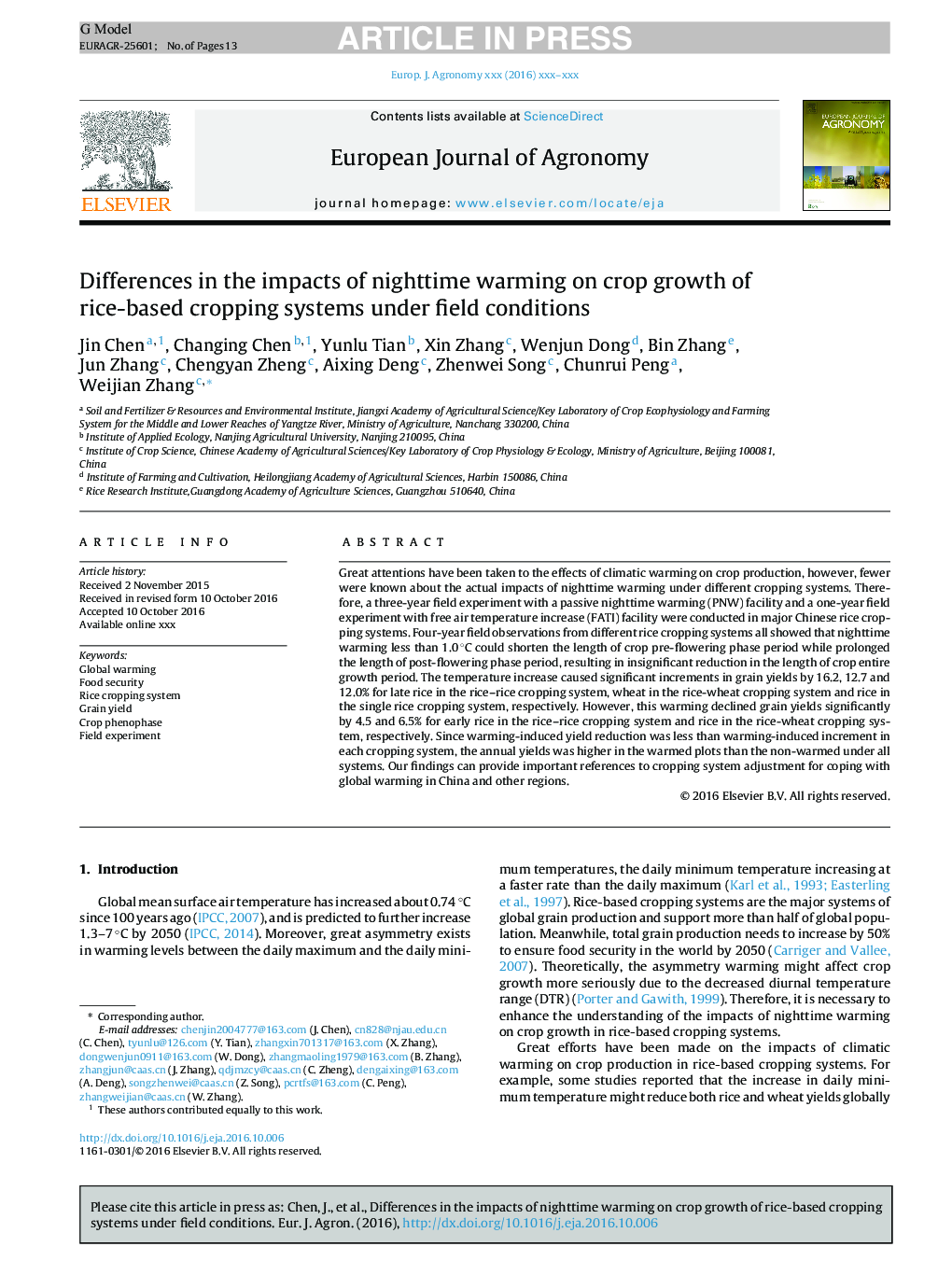| Article ID | Journal | Published Year | Pages | File Type |
|---|---|---|---|---|
| 5761327 | European Journal of Agronomy | 2017 | 13 Pages |
Abstract
Great attentions have been taken to the effects of climatic warming on crop production, however, fewer were known about the actual impacts of nighttime warming under different cropping systems. Therefore, a three-year field experiment with a passive nighttime warming (PNW) facility and a one-year field experiment with free air temperature increase (FATI) facility were conducted in major Chinese rice cropping systems. Four-year field observations from different rice cropping systems all showed that nighttime warming less than 1.0 °C could shorten the length of crop pre-flowering phase period while prolonged the length of post-flowering phase period, resulting in insignificant reduction in the length of crop entire growth period. The temperature increase caused significant increments in grain yields by 16.2, 12.7 and 12.0% for late rice in the rice-rice cropping system, wheat in the rice-wheat cropping system and rice in the single rice cropping system, respectively. However, this warming declined grain yields significantly by 4.5 and 6.5% for early rice in the rice-rice cropping system and rice in the rice-wheat cropping system, respectively. Since warming-induced yield reduction was less than warming-induced increment in each cropping system, the annual yields was higher in the warmed plots than the non-warmed under all systems. Our findings can provide important references to cropping system adjustment for coping with global warming in China and other regions.
Related Topics
Life Sciences
Agricultural and Biological Sciences
Agronomy and Crop Science
Authors
Jin Chen, Changing Chen, Yunlu Tian, Xin Zhang, Wenjun Dong, Bin Zhang, Jun Zhang, Chengyan Zheng, Aixing Deng, Zhenwei Song, Chunrui Peng, Weijian Zhang,
